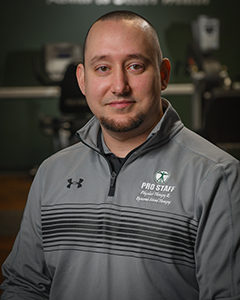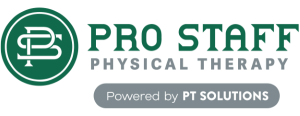What to Expect During Vestibular Rehabilitation Therapy

Vestibular rehabilitation therapy (VRT) is an essential part of the recovery process for patients who have experienced a vestibular disorder. Vestibular disorders affect the inner ear, which controls balance and spatial orientation. Our physical therapists will work with you on various exercises that will help improve your balance and reduce dizziness. In this article, you will learn how vestibular rehabilitation therapy can help you to get relief.
What is Vestibular Rehabilitation?
Vestibular rehabilitation is a treatment that can help to improve the balance and coordination of the inner ear. This can help with dizziness, vertigo, and other symptoms of dizziness, including lightheadedness. Vestibular rehabilitation involves no surgery or medication. Instead, it focuses on re-educating your brain about what your body should be doing when it moves—this includes learning how to stabilize your gaze so that your brain knows where to direct your eyes during motion.
Pro Staff has developed a vestibular rehabilitation program designed to help you regain balance and control. Our therapists often treat both visual and vestibular deficits together, both which are vital for maintaining a sense of balance. The visual and vestibular systems are closely related physiologically and functionally, and people with dysfunction in one or both systems report feelings of dizziness and/or vertigo.
What is Vestibular Rehabilitation Used to Treat?
Vestibular rehabilitation is a therapy used to treat people who have experienced some kind of injury or trauma to their vestibular system. Vestibular rehabilitation is used to treat the following symptoms:
- Motion sickness
- Severe dizziness or vertigo
- Headaches that are triggered by movement or noise
- Inability to walk, stand up straight or move smoothly in any direction
Why Should You Get Vestibular Rehabilitation?
Vestibular rehabilitation therapy helps the brain relearn how to interpret signals from the inner ear and make sense of those signals when confused by symptoms like dizziness and imbalance.
Vestibular Rehabilitation can help improve your ability to function at home and work, reduce your risk of falls, and prevent other health problems such as depression or anxiety. You may also be eligible for disability benefits through Medicare or private health insurance if your vestibular disorder causes enough disability to qualify for coverage under these programs.
How Does Vestibular Rehabilitation Work?
Vestibular rehabilitation is a therapy that focuses on helping people with balance problems. The vestibular system is composed of the inner ear and its connections to the brain, which helps us keep our balance when moving and changing positions. When this system is damaged or not working correctly, it can cause dizziness and vertigo.
Vestibular rehabilitation helps restore normal function in the vestibular system by using exercises that gradually increase activity and challenge patients’ ability to balance and move differently. This process is done under close supervision by a physical therapist who uses specific techniques and exercises to help patients regain their balance.
What to Expect During Vestibular Rehabilitation Therapy?
During your session, you’ll work with a physical therapist to try different exercises to help you regain your balance and improve your coordination. The therapist also administers different tests to evaluate the patient’s problems objectively. The assessment includes screening the visual and vestibular systems to observe how well eye movements are controlled—one way that vision may be affected. The purpose of testing is to gather information about the person’s pain, muscle strength, and ability to move.
The exercises you’ll do with your physical therapist will focus on improving your vestibular system’s ability to send accurate information to the brain so that you can better control your movements.
When Should you See a Physical Therapist for Vestibular Rehabilitation?
If you have had a concussion and/or are experiencing dizziness, vertigo, difficulty walking, or balance problems, you should make an appointment with your doctor to discuss the best treatment options. Your doctor may refer you to a physical therapist for vestibular rehabilitation.
How Long is a Vestibular Rehabilitation Program?
The length of a vestibular rehabilitation program depends on the severity of your condition, but on average, it lasts about two weeks. During that time, you’ll be trained in how to do exercises that help your inner ear regain balance and control. These exercises can be done at home, but some patients prefer to keep doing them with their therapist for longer than two weeks. You may also need to change your diet or lifestyle as part of your program—for example, eating certain foods before performing certain exercises.
Why Choose Pro Staff for Vestibular Rehabilitation?
Vestibular Rehabilitation is an exercise-based therapy designed to improve balance and reduce problems related to dizziness. We’re proud to offer Vestibular Rehabilitation at Pro Staff Physical Therapy and have highly trained physical therapists in the latest techniques for treating vestibular disorders. They’ll hear you out, evaluate if physical therapy is appropriate, and make setting up appointments a breeze. Request an appointment with our staff today!
Pro Staff Institute, LLC, has a network of outpatient physical rehabilitation centers in New Jersey. Pro Staff was founded in 2010 by Frank Pavlisko and Michael Maffucci. Through Frank’s 25 plus years experience in Physical Therapy and Michael’s experience in Management Services, our goal is to exceed customer expectations by providing the highest quality of service in a fun, family, friendly, and encouraging environment.
PRO STAFF LOCATIONS
OFFERING CERTIFIED
HAND THERAPY
Managing Diabetes: The Role of Physical Therapy
Managing Diabetes: The Role of Physical Therapy As of 2024, approximately 38.4 million Americans, or 11.6% of the U.S. population, have diabetes. Of these, 29.7 million cases are diagnosed, while an estimated 8.7 [...]
Staying Active and Injury-Free During Summer Activities
Staying Active and Injury-Free During Summer Activities Summer is a fantastic time to engage in outdoor sports and physical activities. Whether playing soccer, tennis, cycling, or jogging in the park, staying active is [...]
The Importance of Posture: How Proper Alignment Can Prevent Pain and Injury
The Importance of Posture: How Proper Alignment Can Prevent Pain and Injury In today's fast-paced world, where many hours are spent over desks, smartphones, and computers, posture is often neglected. Poor posture can [...]




